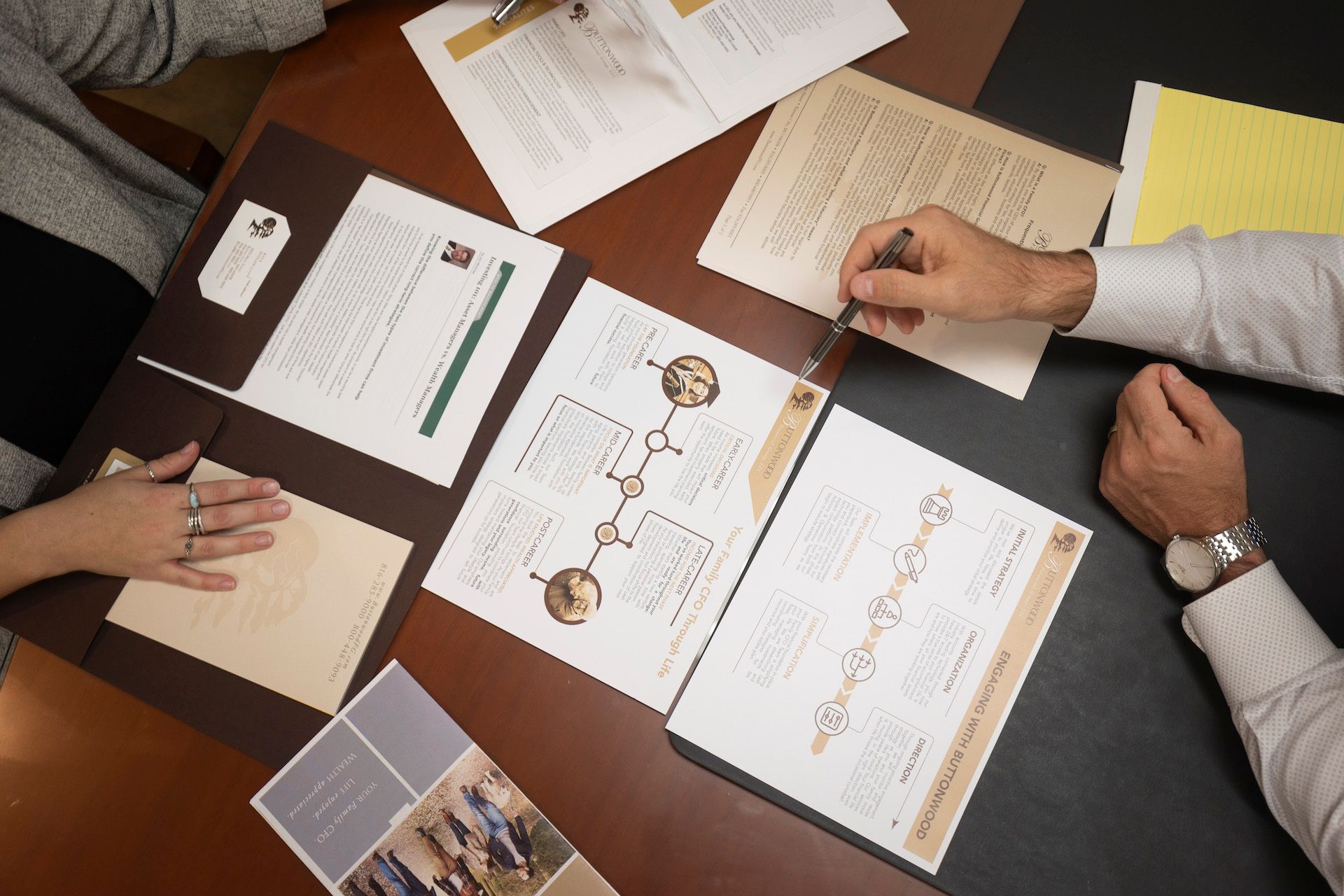9 Questions to Ask Yourself During the Estate Planning Process
The estate planning process can feel overwhelming and never-ending - especially if you’re taking it on alone. As you try to address every possible question or pain point your heirs may encounter, here are a few questions of your own to consider.
Question #1: Do I Have a Will or Trust?
A Will or Trust enables you to specify who you want to inherit your property and other assets. A will also enables you to name a guardian for dependents, such as children under 18 or loved ones with special needs. Probate courts use the Will. Trusts are often designed to avoid the Probate process.
Question #2: Do I Have Healthcare Documents in Place?
Healthcare documents spell out your wishes for health care if you become unable to make medical decisions for yourself. They may also authorize a person to make medical decisions on your behalf should it prove necessary.
These documents often called:
- Living will
- Healthcare Directive
- Durable power of attorney for healthcare
Question #3: Do I Have Financial Documents in Place?
Certain documents allow for others to assist if you can’t. If you become unable to make decisions for yourself, these financial documents can be structured to empower a person to make decisions on your behalf.
These documents and assets titling may include:
- Joint ownership
- Durable power of attorney
- Living Trusts
Question #4: Have I Filed Beneficiary Forms?
In some cases, naming a beneficiary for bank accounts, life insurance and retirement plans defines who will receive these assets if you are no longer around. In other cases, a “Payable on Death or Transfer on Death” form may be required.
Question #5: Do I Have the Right Amount and Type of Life Insurance?
When was the last time you assessed your life insurance coverage? Have you compared the life insurance benefit with your financial obligations?
Keep in mind several factors affect the cost and availability of life insurance, including age, health and the type and amount of insurance purchased. Life insurance policies have expenses, including mortality and other charges. If a policy is surrendered prematurely, the policyholder also may pay surrender charges and have income tax implications.
Consider determining whether you are insurable before implementing a strategy involving life insurance. Any guarantees associated with a policy are dependent on the ability of the issuing insurance company to continue making claim payments.
Question #6: Have I Taken Steps to Manage My Federal Estate Tax?
If you have more than $12 million in assets (for 2022), you may want to consider taking steps to manage federal estate taxes.1 If the law remains unchanged, this amount reverts back to an inflation adjusted $5 million on January 1, 2026. Steps can be taken by working directly with your financial advisor and CPA.
Question #7: Have I Taken Steps to Protect My Business?
If you’d like your family to continue running the business, do you have a family succession plan in place? If you own a business with others, you may also want to consider a buyout or buy/sell agreement.
Question #8: Have I Created a Letter of Instruction or Intent?
A letter of instruction is a non-legal document that outlines your wishes. A strong, well-written letter may save your heirs time, effort, and expense as they administer your estate.
Question #9: Will My Heirs Be Able to Locate My Critical Documents?
After your passing, your heirs will need access to your documents. It is important to keep these items safe, yet accessible because your documents may contain funeral instructions and other time sensitive details your executor will need to know. While original documents are often kept in a fireproof safe or safe deposit box, at Buttonwood, we scan original documents and have them immediately available.
These documents may include:
- Your Will and Trust documents
- Life insurance policies and Annuity contracts
- Deeds to real estate, and certificates for stocks, bonds and funds
- Lists of assets detailing your financial accounts and retirement plans
- Information on any debts you have: credit cards, mortgages and loans
Depending on the size and complexity of your estate, preparing can be a complicated process. Consider working with knowledgeable professionals who can address potential tax obligations, division of property, insurance options and more. The Buttonwood Team stands ready to assist, contact us today.
1. https://www.forbes.com/sites/ashleaebeling/2021/11/11/new-higher-estate-and-gift-tax-limits-for-2022-couples-can-pass-on-720000-more-tax-free/
This content is developed from sources believed to be providing accurate information. It may not be used for the purpose of avoiding any federal tax penalties. Please consult legal or tax professionals for specific information regarding your individual situation. The opinions expressed and material provided are for general information, and should not be considered a solicitation for the purchase or sale of any security.
Recent Buttonwood Articles
Are you ready to explore the benefits of your very own Family CFO?
Buttonwood Services
About Buttonwood Financial Group
Disclosures
Location
Business Hours
- Mon - Fri
- -
- Sat - Sun
- Appointment Only
All Rights Reserved | Buttonwood Financial Group






